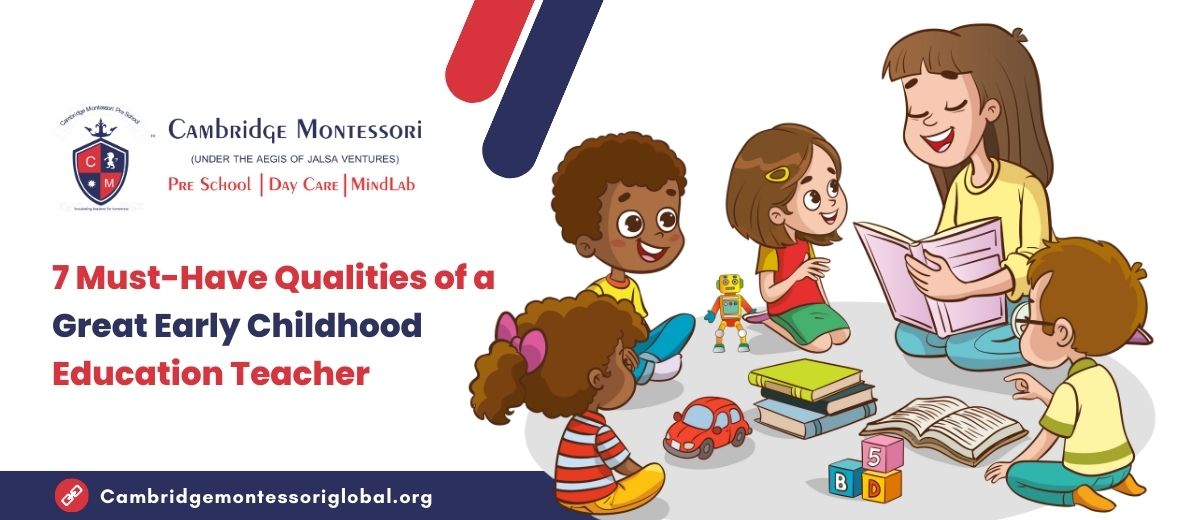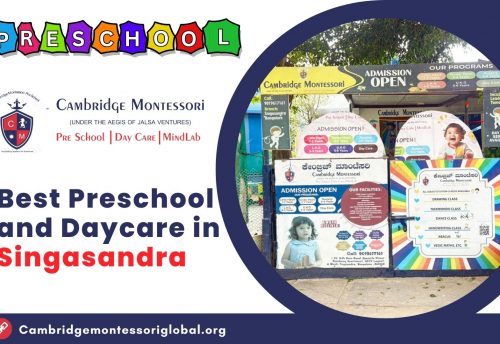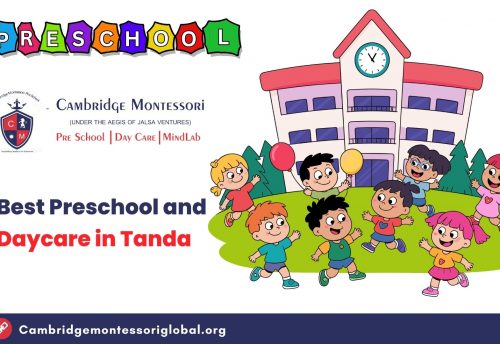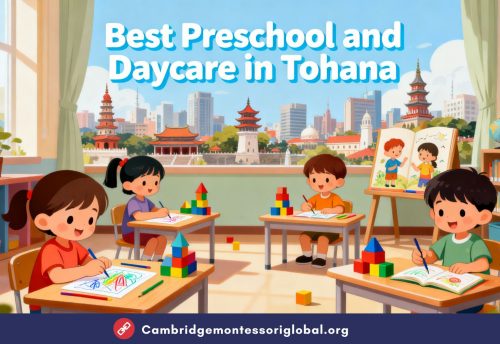
7 Must-Have Qualities of a Great Early Childhood Education Teacher
Every parent has a dream of a happy and confident child who is fond of learning. However, there is a teacher behind the shoulder of all those confident children who know how to give them those first steps. A teacher during the early years is more than an educator; they are a role model, a listener, and a guide. Parents searching for a Child Care Development School in India or the best early childhood education school in India often focus on safety and facilities.
Yet the real difference lies in the teacher. Their qualities shape how early childhood care and education unfold through play, trust, and engaging preschool activities.
1. Patience: Supporting Every Child’s Pace
Children learn in different ways and at different speeds. Some speak early, while others take time. Others enter group games fairly fast, while others enjoy playing quietly. This is known to a patient teacher. They do not hurry and give children time to discover and develop.
Children feel secure and assured when they are patient. It makes them realise that learning involves errors. This is one of the qualities that parents usually observe during their school visits. A patient classroom is calm, happy, and full of small wins.
2. Empathy: Understanding Children’s Feelings
Children are usually expressive in terms of actions. A child who does not want to speak can be timid, nervous, or just tired. An excellent teacher reads the mind and perceives the emotion.
Empathy builds trust. Children will feel that they are valued when a teacher listens, comforts, and respects their emotions. This forms close relationships and assists the children in adapting to new settings. Empathy in teachers is one of the most significant indications of a helpful school.
3. Creativity: Making Learning Fun
Children are naturally curious. They are fond of stories, games, and practical activities. Creative teachers use this energy to design lessons that feel like play.
From singing songs about numbers to painting with colours, creativity turns learning into a joyful process. Activities as simple as role plays or block building in preschool not only teach but also build teamwork and problem-solving. It is the creative classroom that keeps the curiosity going and is sure to keep children anticipating the school day.
4. Communication Skills: Building Clear Connections
Great teachers possess the ability to simplify and make things understandable. They relate to children, parents, and even fellow teachers by communicating with them effectively.
In the case of children, it implies that the instructions can be followed easily. In the case of parents, it means that the progress, challenges, and behavior are discussed openly. By communicating, trust will be developed, and everyone will pull together to ensure that the child develops.

5. Observation Skills: Noticing the Small Details
Every child has unique strengths and needs. A skilled teacher notices these small details through careful observation.
Observation assists the teachers in knowing whether a child requires additional assistance or is prepared to handle new challenges. It also ensures preschool activities are meaningful for each child. This quality is important to parents, as it demonstrates that the teachers are really interested and attentive to the progress of their child.
6. Flexibility: Adapting to Every Situation
Children can be unpredictable. A lesson may need to change if the class is restless, or an activity may need to pause for a child who needs help. Flexibility allows teachers to adapt without stress.
Adaptable teachers make classrooms easy and good. They are concerned about what is most effective for the child, rather than the plan. It is the sign of a strong educator, and that is why parents admire it in good preschools.
7. Passion: The Heart of Teaching
The most qualified teachers enjoy their work. Passion shows in their energy, patience, and care. Children feel this passion and respond with excitement.
Passionate teachers do not stop with lessons. They make children discover, dream, and hope. To parents, passion is what makes certain that their child is receiving instruction at the hands of someone who cares about making futures.
Conclusion
Great early childhood educators are patient, empathetic, creative, and passionate. They monitor, interact, and change to suit the needs of each child. Parents searching for the best early childhood education school in India or a trusted child care development school in India should focus on these qualities as much as facilities.
Frequently Asked Questions
1. Why are teachers so important in early childhood care and education?
Ans. Teachers guide more than lessons. They shape habits, emotions, and social skills during the most sensitive years of growth.
2. How do teachers make preschool activities meaningful for toddlers?
Ans. By mixing play with learning. A good teacher designs games, songs, and activities that improve motor skills, language, and problem-solving.
3. What qualities should parents look for in teachers at good preschools near me?
Ans. Look for patience, empathy, communication skills, and creativity. These qualities make learning safe, fun, and engaging for young children.
4. How often should teachers connect with parents in the early years?
Ans. Regular communication is key. Weekly updates or parent-teacher meetings help ensure that learning at school and home are aligned.



